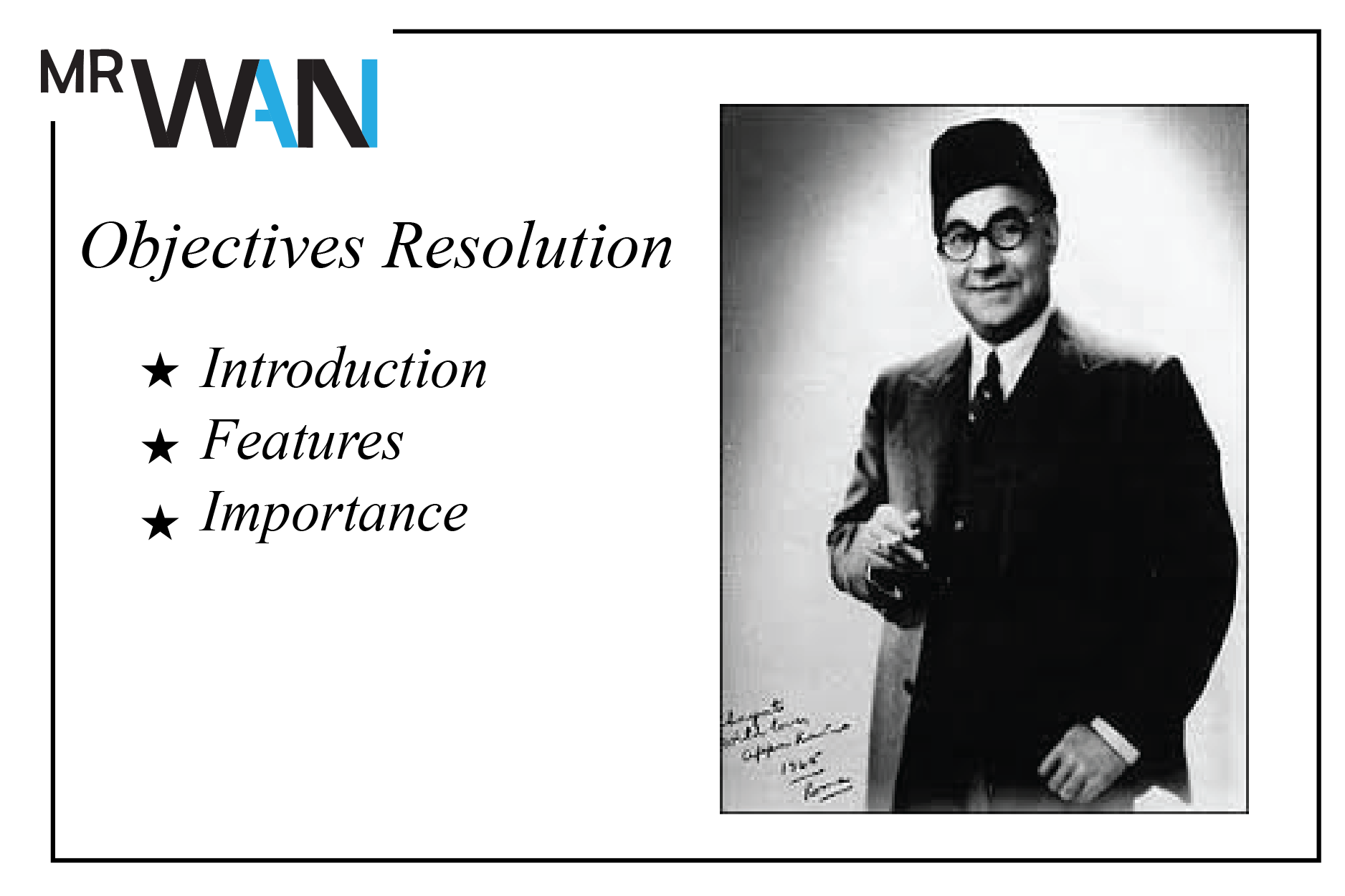Introduction
The Objectives Resolution was passed by Pakistan’s Constituent Assembly in March 1949 under the leadership of Prime Minister Liaquat Ali Khan. It laid the foundation for the country’s future constitution, declaring that sovereignty belongs to Allah and that the state would operate within Islamic principles through elected representatives. It promised democracy, justice, and rights for all, including minorities. However, the Resolution faced strong opposition from non-Muslim members who believed it mixed religion with politics, excluded minorities, and contradicted the inclusive vision of Pakistan’s founder, Muhammad Ali Jinnah. Jinnah had emphasized equal rights for all citizens regardless of religion. Despite objections and proposed amendments by minority leaders, the Resolution was passed by a majority vote. Over time, especially under President Zia-ul-Haq in 1985, it became a binding part of the Constitution, but with changes that reduced protections for minorities. This led to division, mistrust, and contributed to the eventual separation of East Pakistan in 1971. Critics argue that Pakistan must return to Jinnah’s original vision of a just, inclusive Islamic welfare state to ensure unity and harmony.
Features of the Objectives Resolution
Sovereignty of Allah:
Sovereignty belongs to Allah Almighty, and the state exercises authority as a sacred trust. This principle ensures that the government is accountable to a higher power and acts in accordance with divine guidance. By recognizing Allah’s sovereignty, the state acknowledges the limits of its authority. This concept is central to the Islamic political system. It emphasizes the state’s role as a trustee of divine authority. The people of Pakistan exercise authority through their elected representatives within the bounds set by Allah.
Democratic Principles:
The state shall function through chosen representatives of the people, ensuring democratic governance. This feature guarantees that power is held by the people and exercised through their elected representatives. Democracy is a core aspect of the Objectives Resolution. It ensures accountability and representation of the people in government. The resolution emphasizes the importance of democratic values and principles in governance. Elected representatives are responsible for making laws and decisions that reflect the will of the people.
Islamic Principles:
Principles of democracy, freedom, equality, tolerance, and social justice as enunciated by Islam shall be observed. This feature aims to create a just and equitable society based on Islamic teachings. Islamic principles guide the state’s policies and decisions. The resolution emphasizes the importance of equality, freedom, and social justice in governance. By following Islamic principles, the state promotes a moral and ethical framework for society. This approach ensures that governance is grounded in spiritual values.
Protection of Minority Rights:
Adequate provisions shall be made for minorities to freely practice their religions and develop their cultures. This feature guarantees the rights and freedoms of minority communities. Minorities have the right to profess and practice their faith without fear of persecution. The state protects the cultural and religious identity of minority groups. This approach promotes diversity and inclusivity in society. By safeguarding minority rights, the state ensures social harmony and cohesion.
Fundamental Rights:
The resolution guarantees fundamental rights, including equality of status, opportunity, and before law, social, economic, and political justice, and freedom of thought, expression, belief, faith, worship, and association. This feature ensures that all citizens have equal rights and opportunities. Fundamental rights are essential for a just and fair society. The resolution emphasizes the importance of protecting individual freedoms and rights. By guaranteeing fundamental rights, the state promotes social justice and equality.
Independent Judiciary:
The independence of the judiciary shall be fully secured, ensuring impartial justice and rule of law. This feature guarantees that the judiciary is free from external influences and interference. An independent judiciary is essential for upholding the rule of law and protecting individual rights. The resolution emphasizes the importance of judicial independence in ensuring justice and fairness. By securing judicial independence, the state promotes accountability and transparency in governance.
Importance
The Objectives Resolution stated that God’s authority is the highest, and the leaders of Pakistan will use their powers as a trust from God. Unlike Western democracy where people have full control, this Resolution said leaders must follow the rules set by God. They will run the country using values like democracy, freedom, equality, tolerance, and justice, all based on Islamic teachings.
It also promised equal rights to all citizens, including minorities and less privileged groups. Their religion, culture, and rights would be respected and protected.
Lastly, the Resolution made sure that provinces in Pakistan would have proper power, independence, and protection of their borders.
For latest Articles join our WhatsApp channel
https://whatsapp.com/channel/0029Vb5y4EqInlqKkZGCI630

